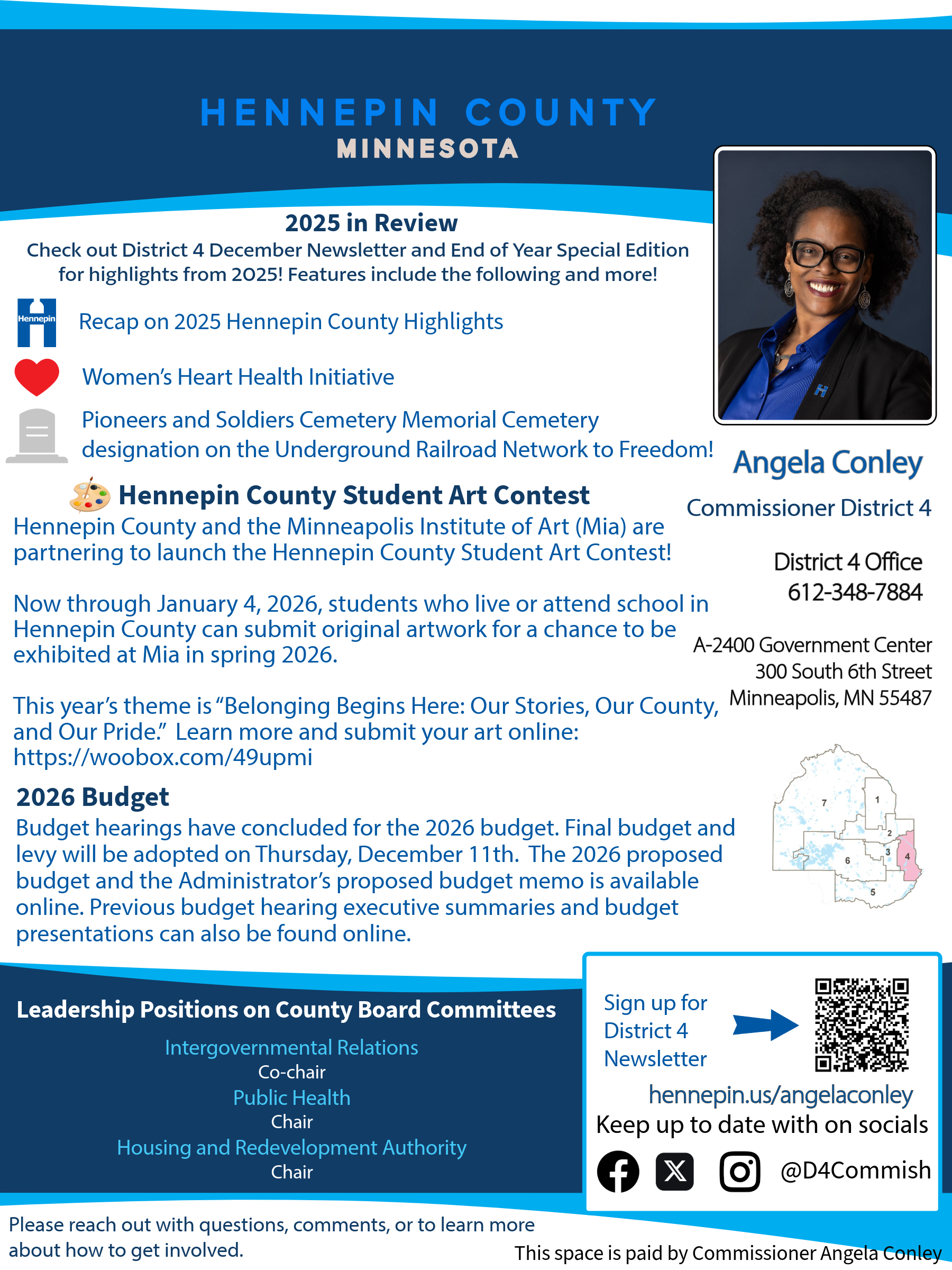By EVANN ZUCKERMAN, Library Patrons Union
Early afternoon on Saturday, February 18, community members held signs emblazoned with “Care not Cops” and “Libraries Belong to the People” in front of the East Lake Library. The group was made up of members of the Library Patrons Union, a collective focused on organizing for more accessible, equitable, and just public libraries in Hennepin County. One sign, “Sitting Down is not a Crime,” referenced an incident where police were called to the library when a patron who was sitting on the floor did not move onto a bench at the request of staff. Less than 45 minutes later, the patron was arrested from the bench she was sitting on quietly. On Saturday, other patrons who spoke to union members outside of the library were shocked to hear about the arrest. Many recalled times they sat on the floor of the library with their children or observed other patrons doing so. As sitting on the floor is not against the rules outlined library’s Patron Conduct Policy, the union believes the escalation was unnecessary, and that this incident fits into the larger pattern of over-policing within the County Library System.
The Library Patrons Union was formed before the arrest and is made up of patrons, educators, parents, and former library employees. The group has plans to keep the library system accountable to the needs of patrons by re-imagining services and spaces, surveying patrons of all identities, and fostering community between library goers.
One patron who observed the incident believes the actions of library staff and hired security were “discriminatory based on the fact that she was Black and appeared unhoused.” She continued, “today was in response to that . . . to share that we’re paying attention and not okay with that treatment of fellow library patrons. The library should approach people with care and respect first and foremost.”
As other patrons walked in and out of the library, members of the Library Patrons Union talked with them about the recently formed advocacy group, and its views on the recent arrest. One union member and unaffiliated patron discussed that they are in the library mostly to pick up holds, but believe considering how all patrons use the library is vital to its function. Another union member was “excited and inspired” by the conversations they had with patrons of “different ages and opinions.” These conversations revealed “patron priorities we didn’t think about,” and broached some of the shortcomings of policy and social services within the system. Additionally, this union member heard that patrons wanted “different kinds of people feeling safe at the library and noticed similar incidents happening and just not knowing what to do.”
The use of the library’s trespass policy is also a concern of the union. The policy, which allows staff to ban patrons from entering a library from a day to a year, disproportionately affects BIPOC patrons. At this time, library staff suggest that patrons who want to discuss the incident, policy, or the union should refer to the administrative staff. For now, union members will continue to connect to patrons across the system. They will do what staff and administration has seemingly neglected to do: ask patrons what they need at their local library.









